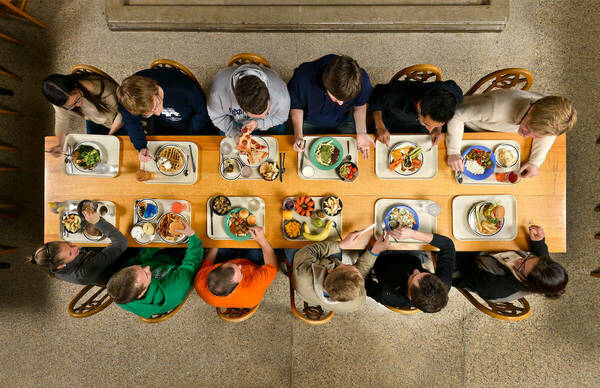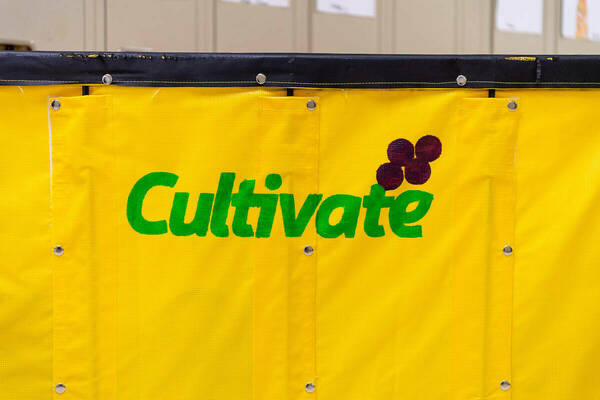Sustainability

We take our commitment to sustainability seriously and have implemented a range of initiatives to reduce our environmental impact, increase social justice, and create a more resilient food system across campus.
LeanPath
LeanPath is a food waste weighting system that uses photographic analysis to create automated detailed reports of the various types of foods being wasted and their causes. Through these reports we are able to get an overview of our food wasting habits, which we can then use to prevent, reduce, and recycle discarded food.
Grind2Energy
We use Grind2Energy technology provided by Insinkerator Emerson, which helps divert pre- and post-consumer food waste from the landfill. This innovative technology processes food waste and pipes it to an onsite tank, where it is then collected by a local septic hauler and delivered to a nearby dairy farm - the largest in the state of Indiana.
At the dairy farm, the food waste is used in the farm’s existing anaerobic digestion system. Additionally, the anaerobic digestion system separates the solid and liquid waste, which are repurposed for different practices within the farm. The solid waste is used as bedding for the cows, which is re-collected once used and put back into the system, while the liquid slurry is sold as organic fertilizer to other local farmers. This closed-loop approach to using food waste is a win-win for the environment and our local community, as it not only reduces the amount of waste sent to the landfill, but also supports sustainable farming practices.
RTI Total Oil Management
Through this easy-to-use oil management system, we are able to supply fresh, clean oil and dispose of used oil just at the click of a button, allowing for easier, safer disposal and eliminating packaging. Best of all, 90 percent of our used oil is then taken to RTI’s facilities where it is recycled and turned into biodiesel. Biodiesel is a renewable energy source that can reduce carbon dioxide emissions by up to 75 percent compared to regular diesel, as well as reducing carbon monoxide and soot particles. The 10 percent of oil that cannot be turned into biodiesel gets turned into animal feed, ensuring nothing is wasted.
Cultivate Culinary

We believe in giving back to our community and helping those in need. That’s why we maintain an ongoing partnership with Cultivate Culinary, a local organization that provides high-quality, well-balanced meals to food-insecure families throughout the Michiana area.
Through this partnership, we’re able to rescue food from events and donate it to Cultivate. They then “rescue” and re-use this food through multiple programs, including a weekend backpack program that helps feed K–12 students facing poverty.
Powerful Partnerships
By partnering with key stakeholders that are doing right by our communities, the planet, and their employees, we have been able to create a more robust, resilient, and sustainable food system within our campus.